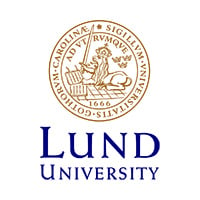Localization of radioactive sources out of control using mobile gamma spectrometry and recursive frequentist and Bayesian inferencev
Position Details (PhD Program)
In the research group Medical Radiation Physics, Malmö, research is conducted in the interdisciplinary subject of medical radiation physics, which includes medical applications using ionizing and non-ionizing radiation, radiation protection and environmental radiology. The research group is led by Professor Lars E Olsson. Professor Christopher Rääf conducts research in environmental radiology and radiation protection with responsibility for the research group’s radiometry laboratory. The laboratory is located at the Imaging Center at Skåne University hospital in Malmö. More information about the research group and our exciting research can be found at: https://www.msf-malmo.lu.se/
Within the research group, we safeguard a good work environment where respect and consideration are shown to other employees. We care about both physical safety and the organizational and social work environment.
Lund University is a public authority, which means that you will have special benefits, generous annual leave and an advantageous occupational pension.
Read more on the University’s website about being a Lund University employee, Work at Lund University.
Project description
We are looking for a PhD student for our research project, “Localization of radioactive sources out of control using mobile gamma spectrometry and recursive frequentist and Bayesian inference“. The aim is to develop efficient analysis methods for mobile gamma spectrometric search of radiation sources that have gone out of control through accidents, thefts or acts of war and to determine their position, shielding and activity. Knowledge and methods generated in the project aim to secure radiation sources that have gotten out of control and contribute to reliably declassifying areas where there are no dangerous radiation sources.
Statistical analysis methods for radiation source search have been developed and tested experimentally at the research group. The most recently developed method uses Bayesian inference through a combination of the radiation’s physical properties and geographically determined measurement data, which results in a probability distribution over the position and activity of a radiation source without the need to get close to the source. The project includes studying previously described methods, developing variants of a hybrid method based on frequentist and Bayesian statistical analysis, programming the methods and testing their performance through practical experiments with authentic radiation sources.
Work duties and responsibilities
The primary duties of the doctoral candidate are to conduct his/her research studies, including participation in research projects and graduate courses. The doctoral candidate must compile his/her research assignments and submit them for publication in scientific journals.
The doctoral position also includes 20% compulsory participation in laboratory maintenance (including internal/external exercises in the field), limited teaching assignments and quality control of the research group’s mobile radiometry system.
Qualifications
The following are required for the position:
- Master’s degree in medical radiation physics, nuclear physics, technical physics or an equivalent field.
- Experience in programming for physical or technical applications, for example in Python, C/C++, Fortran, Basic, R, Java or equivalent.
- Proficiency in oral and written communication in English
- Good communication, presentation and writing skills
- Good teamwork skills and ability to work independently with a solution-focused approach
Meritorious for the position are:
- Passed second cycle courses on in statistics or mathematical analysis
- Documented good skills in spoken and written Swedish
- European B driving license
Eligibility
Students with basic eligibility for third-cycle studies are those who: have completed a second-cycle degree, have completed courses of at least 240 credits, of which at least 60 credits are from second-cycle courses, or have acquired largely equivalent knowledge in some other way, in Sweden or abroad.
Basis of assessment
The employment of doctoral students is regulated in the Swedish Code of Statues 1998: 80. Only those who are or have been admitted to PhD-studies may be appointed to doctoral studentships. When an appointment to a doctoral studentship is made, the ability of the student to benefit from PhD-studies shall primarily be taken into account. In addition to devoting themselves to their studies, those appointed to doctoral studentships may be required to work with educational tasks, research and administration, in accordance with specific regulations in the ordinance.
Instructions for the application
Applications must include a personal motivation letter, a CV, a diploma of your Master’s degree and other documents you wish to be considered (e.g. letters of recommendation).
Type of employment
Fixed-term employment, four years, in accordance with the Higher Education Ordinance, Chapter 5 Section 7. This a full-time position with preliminary starting date in February 2023 or otherwise agreed.



 Lund University
Lund University 